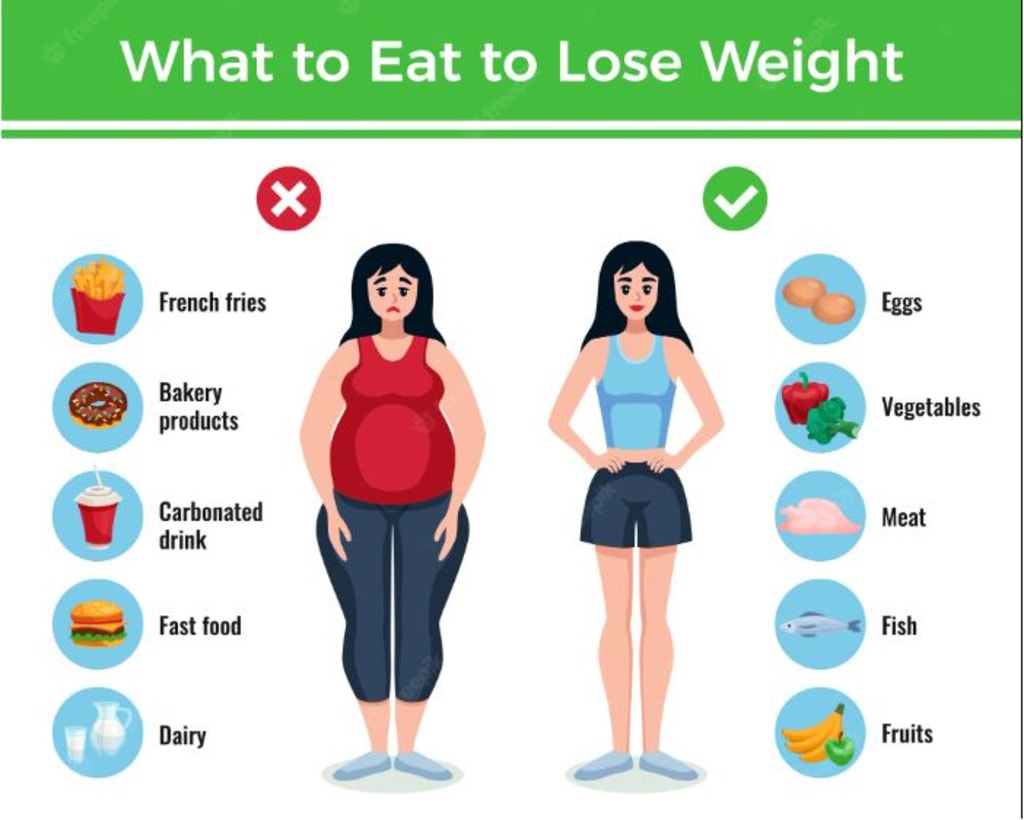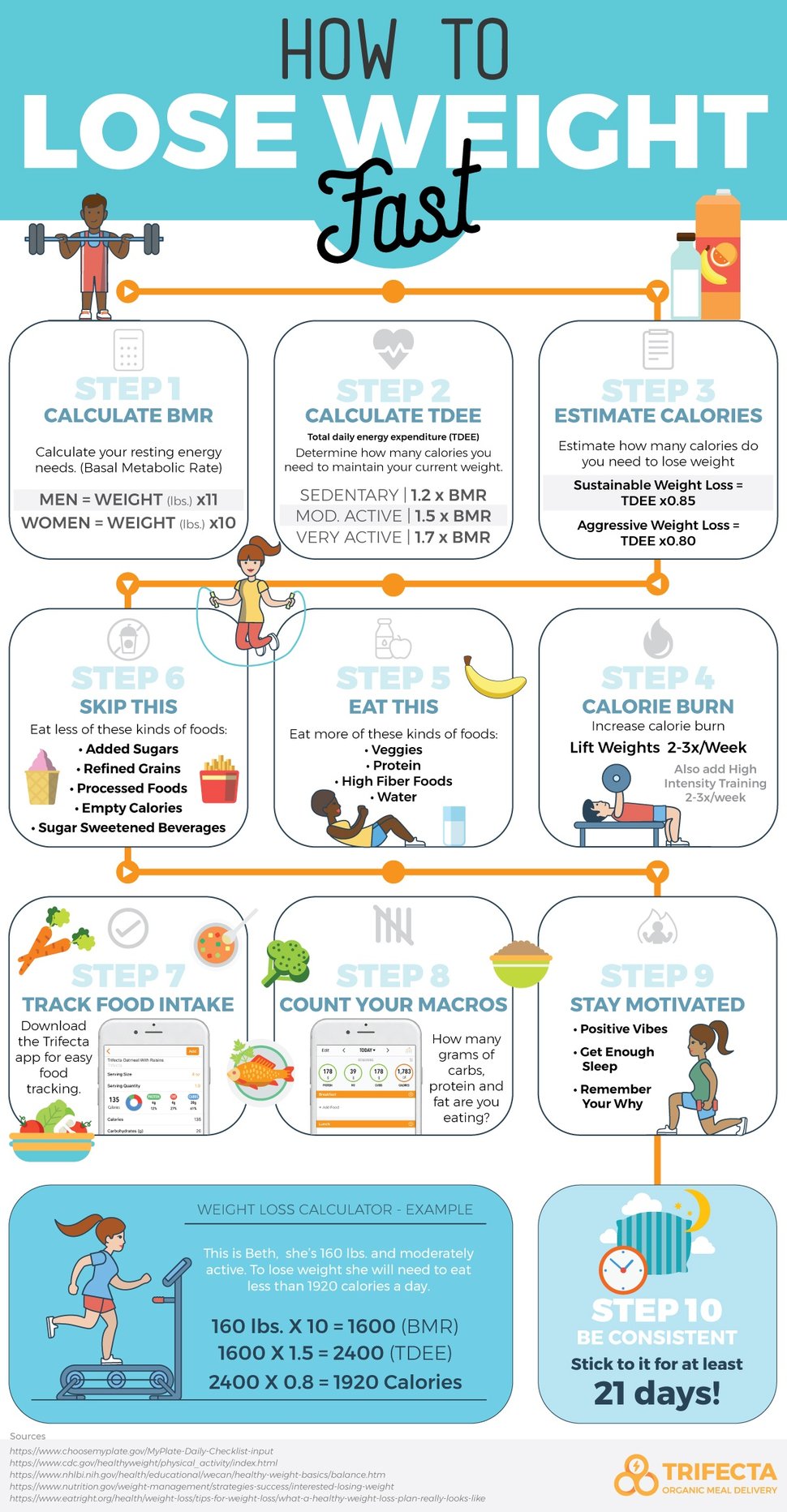
Losing weight quickly often involves significant dietary changes and increased physical activity. While rapid weight loss can be appealing, especially for individuals with obesity-related health issues, it also carries potential risks and is generally not recommended for long-term, sustainable weight management [1] [14].
According to www.iAsk.Ai - Ask AI:
Rapid weight loss is typically defined as losing more than 2 pounds (1 kilogram) per week over several weeks [1] [14]. This rate of weight loss usually requires a substantial reduction in calorie intake [1]. While some methods can lead to quick results, it's crucial to understand the mechanisms, benefits, and risks involved.
Methods for Rapid Weight Loss
Several approaches can lead to rapid weight loss, primarily by creating a significant calorie deficit:
- Very Low-Calorie Diets (VLCDs): These diets involve consuming as few as 800 calories per day and can result in a loss of 3 to 5 pounds (1.5 to 2 kg) per week [1]. VLCDs often utilize meal replacements like formulas, soups, shakes, and bars to ensure adequate nutrient intake despite severe calorie restriction [1]. They are typically recommended for adults with obesity who need to lose weight for health reasons, often before weight-loss surgery, and should only be undertaken under medical supervision for a short duration, usually no more than 12 weeks [1] [14].
- Low-Calorie Diets (LCDs): These diets generally allow 1,200 to 1,500 calories per day for women and 1,500 to 1,800 calories per day for men [1]. While weight loss is slower than with VLCDs, LCDs are often a more sustainable option and can still lead to significant weight loss over time [1]. They may combine meal replacements with regular food, making them easier to follow [1].
- Intermittent Fasting (IF): This eating pattern cycles between periods of eating and fasting [2] [3]. Common methods include:
- Time-Restricted Eating (e.g., 16:8 method): Limiting eating to a specific window each day, such as 8 hours, and fasting for the remaining 16 hours [1] [3]. For example, eating all meals between 10 AM and 6 PM [1].
- 5:2 Diet: Eating normally for five days a week and significantly restricting calorie intake (e.g., 500-600 calories) on the other two non-consecutive days [1] [2] [3].
- Alternate-Day Fasting: Fasting every other day or consuming a very limited number of calories (20-30% of energy needs) on fasting days [3] [15]. Intermittent fasting works by promoting metabolic switching, where the body exhausts its sugar stores and begins burning fat for energy [2]. While research shows short-term benefits for weight management and metabolic health, long-term effects are still being studied [2] [15].
- Dietary Modifications:
- Reducing Refined Carbohydrates: Limiting intake of refined grains (white bread, pasta) and sugary foods can help reduce calorie intake and prevent blood sugar spikes, which can lead to increased hunger [3] [4].
- Increasing Protein Intake: Protein promotes satiety, reduces hunger hormones like ghrelin, and helps preserve muscle mass during weight loss [3] [6]. Aiming for 1.2 to 2 grams of protein per kilogram of body weight daily can be beneficial [3].
- Increasing Fiber Intake: Fiber-rich foods (fruits, vegetables, whole grains, beans) contribute to fullness and can help reduce overall calorie consumption [3] [6].
- Avoiding Liquid Calories: Sugary drinks, fruit juices, and alcoholic beverages contribute significant "empty" calories without providing satiety [7] [8]. Opting for water, unsweetened tea, or seltzer is recommended [7].
- Lifestyle Changes:
- Mindful Eating: Paying attention to how and where you eat, eating slowly, and recognizing fullness cues can prevent overeating [3] [7].
- Regular Physical Activity: While rapid weight loss is primarily driven by calorie restriction, exercise, particularly a combination of cardio and strength training, helps burn calories, build muscle, and improve body composition [4] [6] [9]. The Centers for Disease Control and Prevention (CDC) recommends at least 150 minutes of moderate-intensity aerobic activity or 75 minutes of vigorous-intensity activity per week, along with muscle-strengthening activities at least two days a week [6].
- Adequate Sleep: Insufficient sleep can disrupt hormones that regulate appetite (leptin and ghrelin) and metabolism, potentially leading to increased hunger and fat storage [3] [6].
- Stress Management: Chronic stress can affect hormones like cortisol, which is linked to abdominal fat accumulation and can lead to emotional eating [3] [9].
Benefits of Rapid Weight Loss
For individuals with obesity, rapid weight loss can offer significant health benefits, particularly in the short term. These include improvements in:
- Blood pressure [1] [2]
- Blood sugar control and insulin sensitivity, especially for those with type 2 diabetes [1] [2] [5]
- Cholesterol and triglyceride levels [1] [5]
- Sleep apnea [1]
- Joint pain [1]
- Heart health and blood vessel function [2] [4]
A study comparing rapid (5% weight loss in 5 weeks) and slow (5% weight loss in 15 weeks) weight loss protocols found that both improved anthropometric indicators and lipid/glycemic profiles. Notably, rapid weight loss was more effective in reducing LDL cholesterol and fasting blood sugar, and improving insulin resistance and sensitivity [5].
Risks and Concerns of Rapid Weight Loss
Despite potential benefits, rapid weight loss carries several risks and is generally not recommended for most people without medical supervision [1] [14]:
- Nutrient Deficiencies: Severely restricting calories can lead to inadequate intake of essential vitamins and minerals, potentially causing malnutrition [1] [14].
- Loss of Muscle Mass: Rapid weight loss often results in a disproportionate loss of lean muscle mass, which can slow metabolism and make long-term weight maintenance more challenging [3] [5] [14].
- Side Effects: Common side effects include gallstones (a significant risk, occurring in 12-25% of people losing large amounts of weight rapidly), gout, fatigue, constipation, diarrhea, nausea, headaches, irritability, dizziness, menstrual irregularities, and hair loss [1] [14].
- Weight Regain: People who lose weight very quickly are significantly more likely to regain the weight over time compared to those who lose it slowly and sustainably [1] [3] [14]. The body's hormonal response to rapid weight loss can be stronger, promoting weight regain [1].
- Not for Everyone: Rapid weight loss diets are generally unsafe for children, teens, pregnant or breastfeeding women, and older adults, unless specifically recommended and supervised by a healthcare provider [1] [2]. Individuals with certain health conditions (e.g., type 1 diabetes, eating disorders) should also avoid intermittent fasting or rapid weight loss without medical guidance [2].
Sustainable Weight Loss
For most individuals, a safe and sustainable rate of weight loss is 1 to 2 pounds (0.5 to 1 kg) per week [1] [3] [6]. This slower approach allows for the adoption of long-term healthy habits and is more likely to lead to sustained weight management [1] [6].
Key elements of sustainable weight loss include:
- Balanced Diet: Focusing on nutrient-dense foods like fruits, vegetables, lean proteins, and whole grains [6] [10].
- Portion Control: Being mindful of serving sizes to manage calorie intake effectively [10].
- Consistent Physical Activity: Incorporating regular exercise into daily routines [6] [9].
- Behavioral Changes: Developing healthy eating habits, managing stress, and prioritizing sleep [3] [9].
- Professional Guidance: Consulting with a healthcare provider, registered dietitian, or nutritionist can provide personalized advice and support for safe and effective weight loss [3] [6] [11].
While the allure of quick results is strong, the most effective and healthy way to lose weight is through gradual, consistent lifestyle changes that can be maintained long-term [6] [10].
Authoritative Sources
- Diet for rapid weight loss. [Mount Sinai]↩
- Intermittent Fasting: What is it, and how does it work? [Johns Hopkins Medicine]↩
- 10 potentially effective methods for weight loss. [Medical News Today]↩
- 8 Ways to Lose Belly Fat and Live a Healthier Life. [Johns Hopkins Medicine]↩
- Anthropometric and Metabolic Effects of Rapid and Slow Weight Loss in Obese and Overweight Individuals: A Randomized Clinical Trial. [PMC NCBI]↩
- How to lose 20 pounds. [Healthline]↩
- 10 Weight-Loss Tricks That Really Work. [Sutter Health]↩
- 50 easy ways to lose weight. [BBC Good Food]↩
- How Your Body Fights Weight Loss. [NM HealthBeat]↩
- The Truth About Fad Diets. [WebMD]↩
- How Can I Lose Weight Safely? [KidsHealth]↩
- Lose weight. [NHS]↩
- Intermittent fasting: Fad or solution? [Mayo Clinic Health System]↩
- Losing Weight Fast. [WebMD]↩
- Intermittent fasting: Fad or valid weight-loss solution? [Mayo Clinic Health System]↩


Answer Provided by iAsk.ai – Ask AI.
Sign up for free to save this answer and access it later
Sign up →